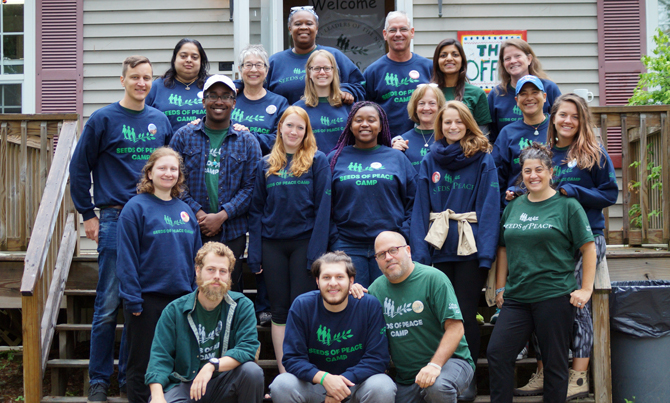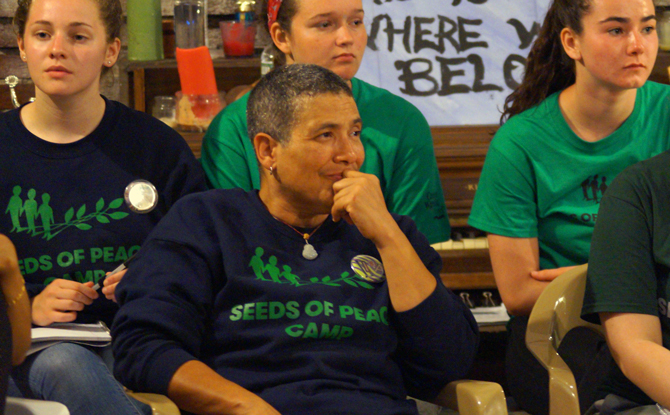With American Seeds returning to school earlier this month, we’re shining a light on the Seeds of Peace Educators who attended our Educating in a Diverse Democracy course.
Begun in 2017, the program brings educators to Camp from across the United States to live together, learn from one another, and focus on their craft for two-and-a-half weeks. When they return home, they play a vital role in helping Seeds reach their goals, as well as multiplying impact across communities where Seeds of Peace already exists or hopes to grow.
“Educating in a Diverse Democracy—those were the words,” Lisa said, citing what it was that encouraged her in early 2017 to apply for the inaugural course. “I was educating already, but at that time—right after the election of Donald Trump—and now, this sort of experience was just so necessary.”
Nearly every student Lisa works with as an afterschool programs coordinator at Centro Romero, an organization that serves the immigrant and refugee community on the north side of Chicago, is from an immigrant family. About 80 percent of her students have at least one relative that is undocumented, she said, and after the 2016 election, the anxiety among the students was palpable.
“The adults had people they could go to, and services to help them, but the students had a lot of angst, especially the teens, and nowhere to go,” she said. “I was hoping to be able to talk to them better and help them through that time.”
Lisa was not immune to the stress. Normally an optimistic person, she said she went to Maine in the summer of 2017 feeling somewhat drained. She had no expectations, just a hope of meeting other educators and sharing their experiences. What she found, she said, “was mind blowing.”
“There were deep talks where we didn’t always agree, but we’d butt heads respectfully and come to a positive end,” she said. “Those two beautiful white men [fellow educators in the group] took a beating on some days, but they did it knowing we would listen to them as well. In the end we realized that not everyone’s perception was 100 percent right.”

While the discussions and workshops could be intense, she said the Educators program also gave her and her fellow participants the chance to slow down, reflect on their craft and learn the importance of “refilling the cup.”
“As educators, we give and give and give, and then go to bed wondering ‘Did I do enough?’” she said. “Now I know it’s important to restore myself, and when I do, I’m even stronger when I go back.”
The greatest takeaways, she said, were hope, and a community that she would continue to find support in—be it through emails, phone calls, or the WhatsApp group that they created after Camp. Though she went into the program feeling deflated, it was these people, she said, that helped her “come out fighting like a lion—and knowing that I wasn’t the only one fighting.”
Since leaving Camp, she said she’s also become more comfortable with difficult questions and topics, helping her be a better listener and advocate for her students. She sharpened skills she already had, and picked up new dialogue techniques, such as handing the power off to the youth in her program. She’s also used various pieces from Camp to incorporate restorative justice and be less punitive. When one student brought alcohol to the program, she used the “fishbowl” exercise, in which the students sat in a circle around the boy to listen as he explained his choices.

“He admitted what he was thinking, why he did it, how he lost the trust of his grandparents and how he’s going to work to bring it back,” she said, adding that the exercise had an added benefit for the other students involved. “Even though that circle was meant to have witnesses to the boy’s choice, the other students said they actually felt like they were heard as well. They all saw themselves in him.”
Among her goals this year, she said, is to push her students to take on community-oriented projects—another goal partially inspired by the Seeds of Peace model.
“We’ve been working on building their confidence and helping them find the greatness in them,” she said of her students. “But I always tell them, the only reason you have greatness is to share it.”

